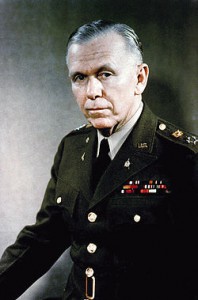 To John McKinstry Merriam
To John McKinstry Merriam
Via Santo Stefano Rotondo, 6
Rome. January 17, 1948
Dear Merriam,
You ask me to write you, for your Class Luncheon, something about the political state of things in the world, and you tell me what the Marshall plan is. I know all about that and the views current here (I mean in Europe, not Rome or Italy) about it, whether it is prudent charity, to prevent Western Europe from being Russianised, or sheer enterprise, to secure larger markets and military outpost for American expansion abroad, now that the home lands have filled up. I don’t know whether this second motive exists, consciously or unconsciously in any American circle, but if it does, my philosophy would at once dismiss it as a mere makeshift. For in a century or two (nothing for a philosopher) when Asia and Africa were filled up with men and industries up to the brim, the question would recur as pressingly as at present, and the real problem, not one of how to enlarge business but how to lead a rational life, would impose itself on the cosmopolitan government that we may suppose would then exist. Why should not this real question be put and answered now in each country and community, without looking for outlets or resources beyond its accidental borders?
As to what is likely to happen, I have no inside knowledge or divine revelation. I think the communist area, under Russian control, may be extended over continental Europe, perhaps without a great war, by the aggressiveness of the communist party everywhere and the apathy and disunion of conservative forces. If this process is resisted by force of arms, supported by America and England, there will be a great war; the character of it would be very like the Napoleonic wars, one side with its home strength beyond the risk of invasion and with undisputed command of the sea, and the other with determined unified leadership but an insecure possession of its conquests. The ultimate result, I think, would be the emancipation of the conquered countries, as it was after Napoleon; but passage under a far more destructive social revolution would leave the European (and Asiatic) countries in a condition radically different from what it was in the Golden Age of Queen Victoria. The great change, however, might be in the other camp, where a willing union of the Americans and the British Commonwealth of Nations, with perhaps some clients beyond, would form what Toynbee, in his “Study of History” calls a “Universal State”, not all-comprehensive but supervening over a crowd of small nations.
I don’t think there is any cause for alarm about the future of mankind: but Europe may be knocked to pieces by the way.
Best wishes for the remaining fragments of ’86 from
G Santayana
From The Letters of George Santayana: Book Eight, 1948-1952. Cambridge, MA: The MIT Press, 2008.
Location of manuscript: Unknown
